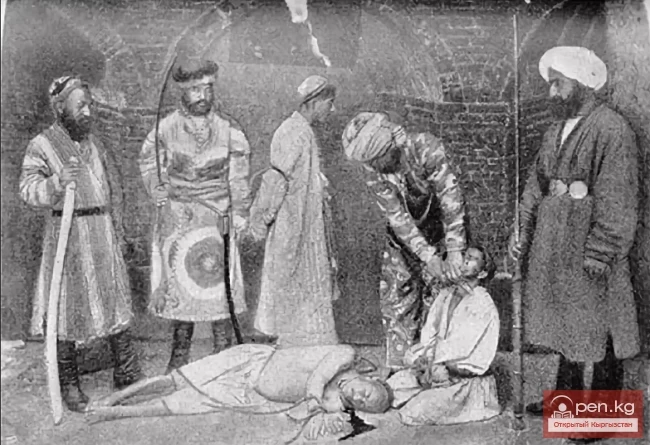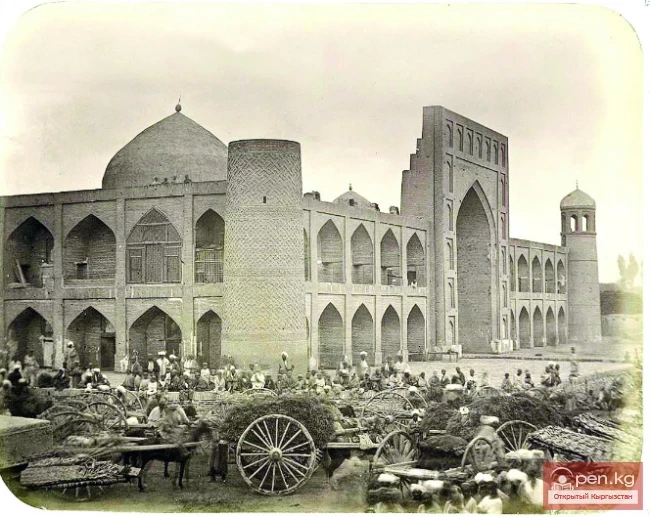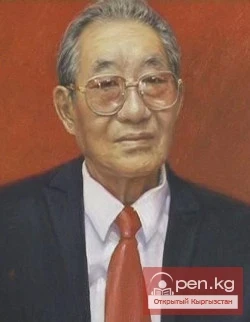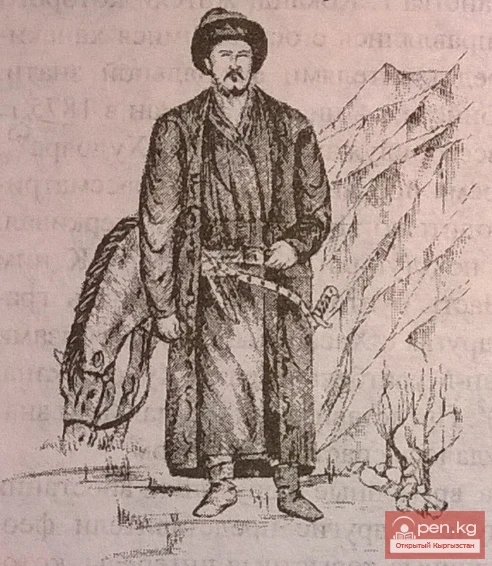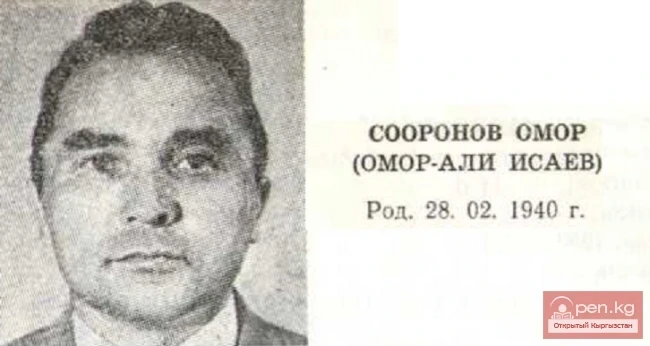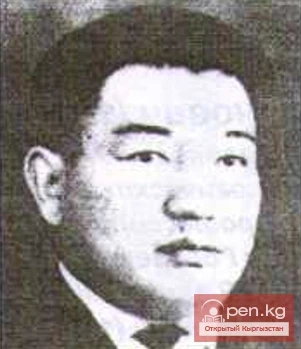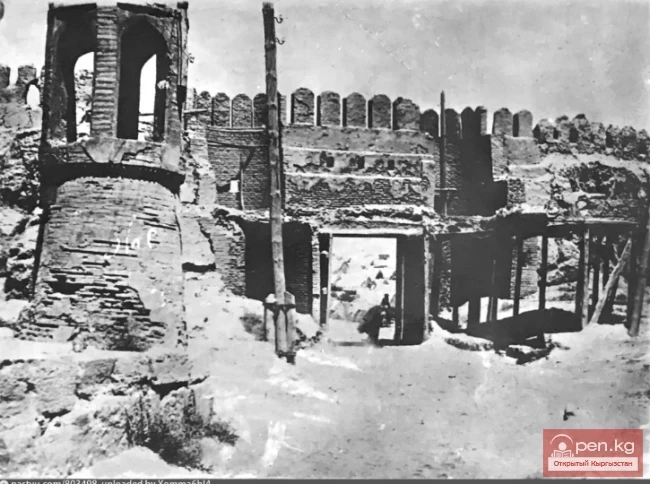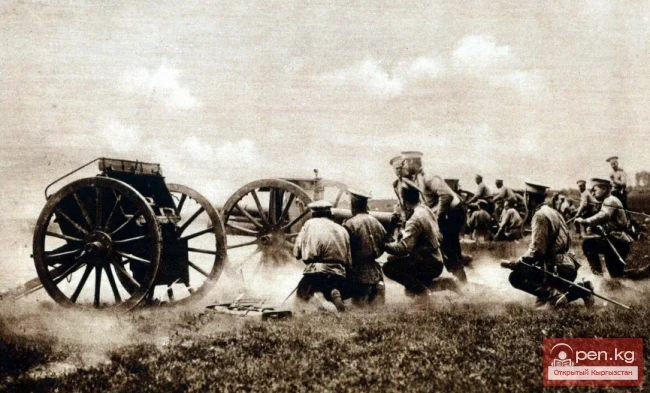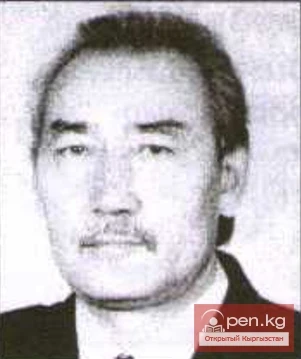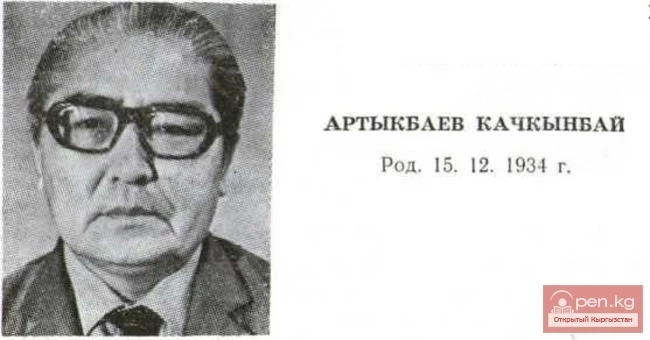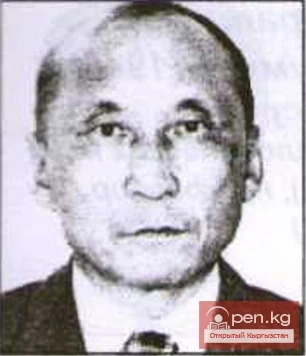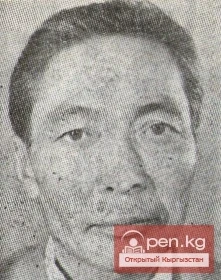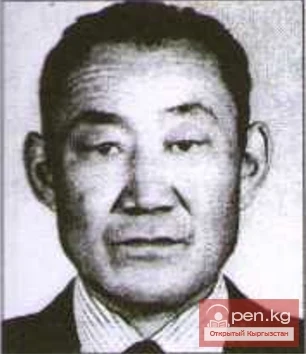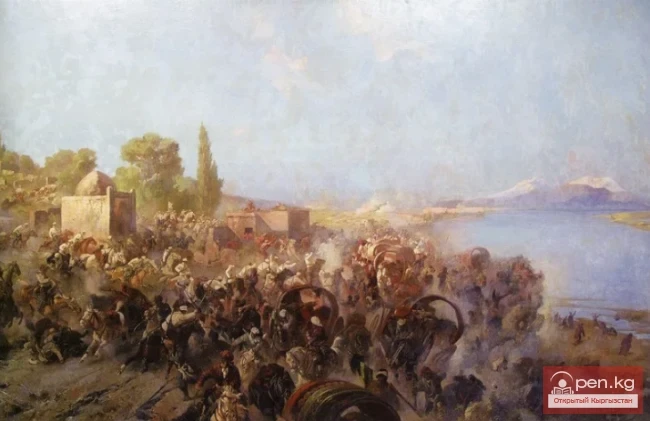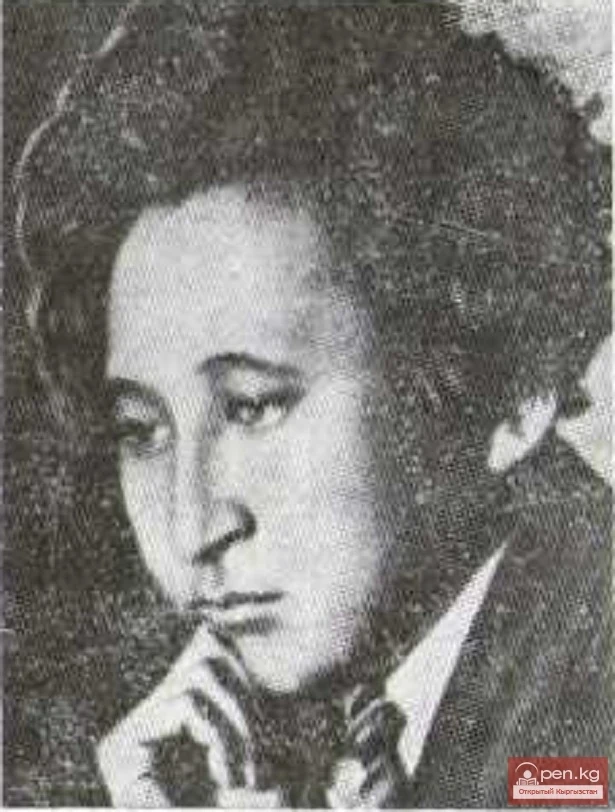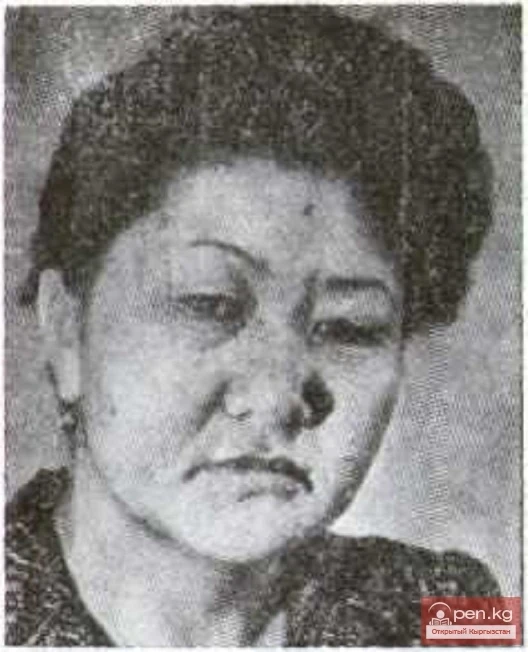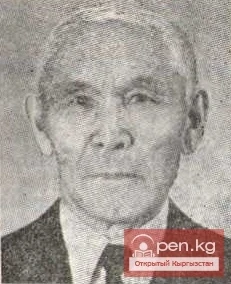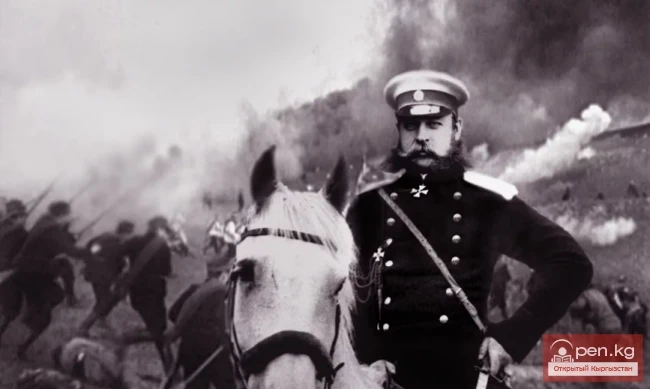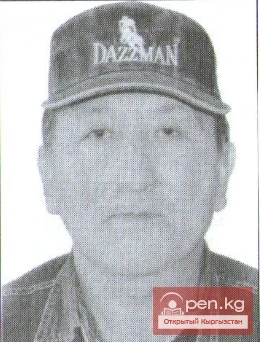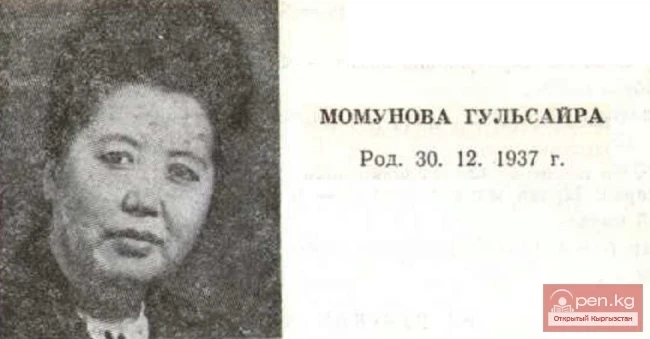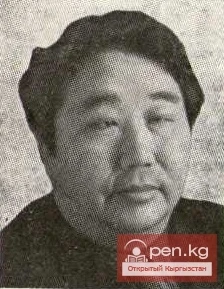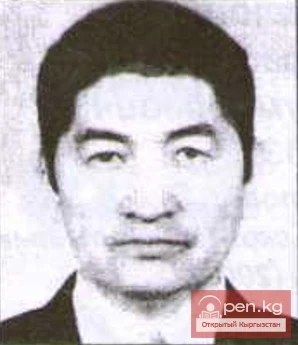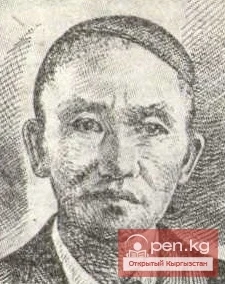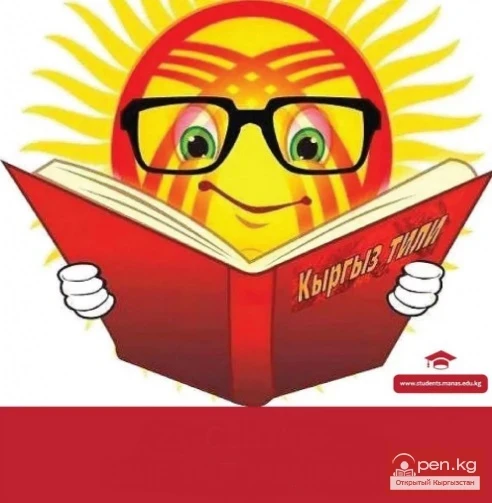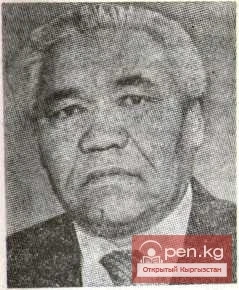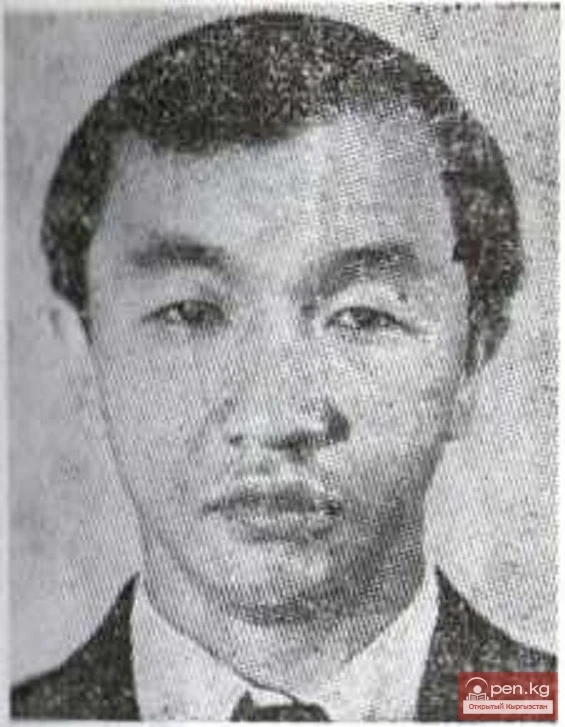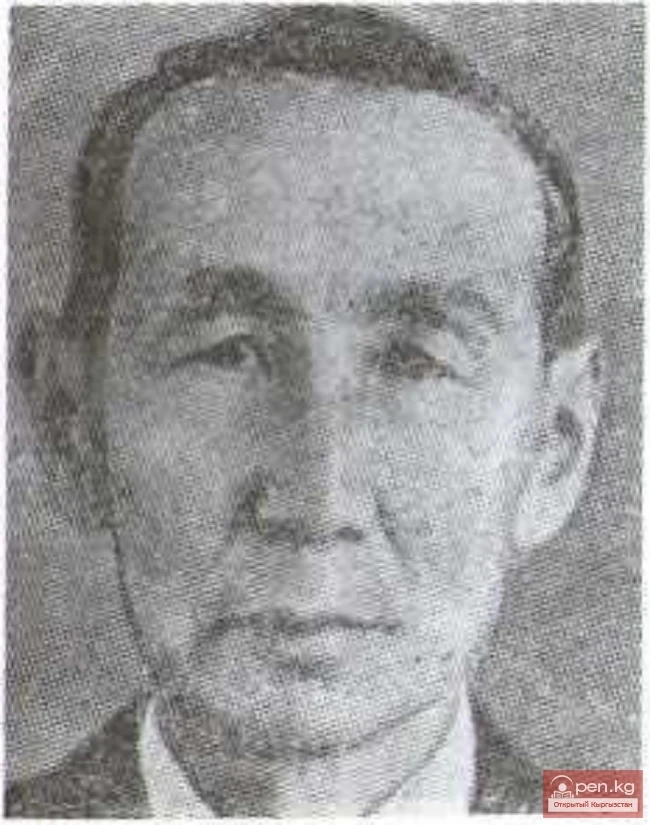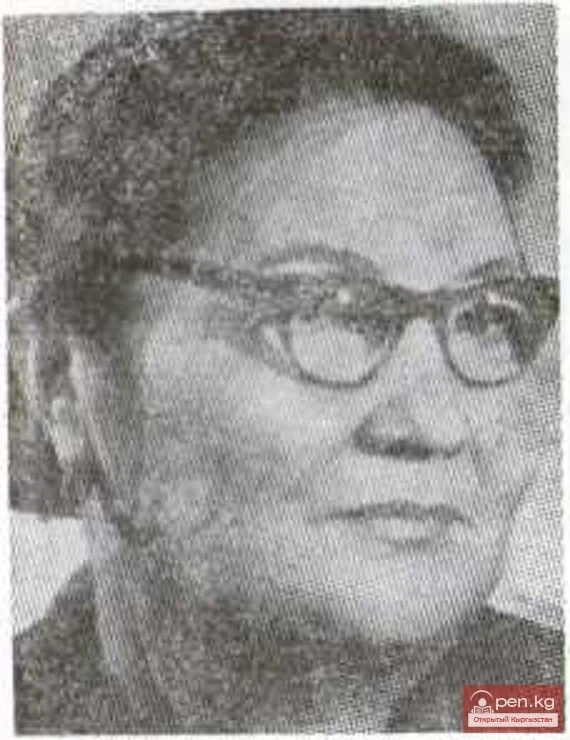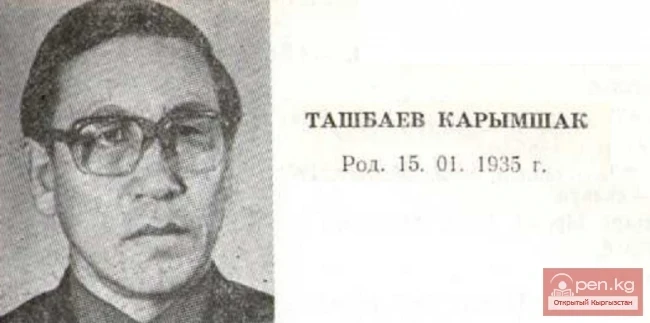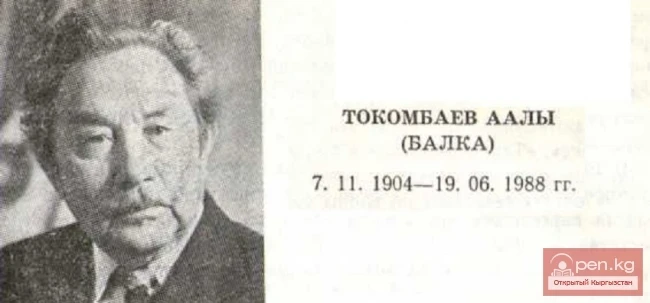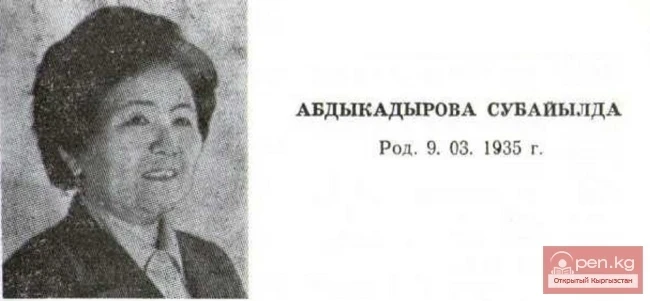The Cruelty of Nasr-Eddin Towards Uzbek, Kyrgyz, and Tajik Workers
On September 22, Nasr-Eddin Khan and the feudal lords surrounding him, trying to maintain power in their hands under the patronage of the tsarist colonizers, signed a treaty with the Turkestan Governor-General Kaufman, in which the Kokand Khan recognized himself as a submissive servant of the Russian government, renounced the right to direct diplomatic relations with other states, and any military actions without the permission of the Turkestan Governor-General, opened his possessions to Russian merchants and entrepreneurs, and committed to pay a tribute of 600 thousand rubles. Additionally, the Kokand Khanate was to pay Russia an annual tax of 5 thousand rubles.
According to this treaty, the entire northern part of the khanate along the right bank of the Syr Darya and Naryn rivers, including part of Fergana with the city of Namangan, was ceded to the possessions of Tsarist Russia. From the newly acquired lands within the Turkestan Governor-Generalship, the Namangan District was formed, headed by Colonel Skobeleva. By signing the aforementioned treaty, Nasr-Eddin Khan, like his father Khudoyar, became a submissive servant of tsarism. The tsarist authority, in turn, took him under its protection. It is no coincidence that Kaufman addressed the population of the Kokand Khanate with a threatening call to cease resistance and assist the new "legitimate" Khan Nasr-Eddin in any way possible. Thus, in one of his proclamations from September 25, it is stated that "...Pulad-bek (Pulad-Khan — K.U.) is again disturbing the people... I invite everyone to help their Khan with all their might. I also declare to the entire population that I will not tolerate disorder in the khanate... I warn that if the disorder continues in the khanate, the hour of punishment will come, then repentance will be too late, and there will be weeping and grief." However, neither Kaufman's threatening proclamations to the local population nor the brutal actions of the tsarist punitive forces mentioned above could halt the popular uprising.
The attempts of the new Khan and representatives of the tsarist authority to collect taxes and tributes from the population, as well as troops for the khan's army, and the heavy tribute that weighed additionally on the shoulders of Uzbek, Kyrgyz, and Tajik workers, along with the cruelty of Nasr-Eddin, raised new waves of revolt against feudal-khanite oppression and the colonizers supporting them. The immediate cause of the renewed uprising was Nasr-Eddin's attempt to gather people for military service to the khan. An eyewitness to the uprising, journalist N. Maev, rightly noted: "No one wanted to serve the unpopular Khan, who was chosen to the throne solely because the leaders of the insurgent movement hoped to control the khanate in his name. Kaufman was forced to reckon with the actual situation in the Kokand Khanate, noting that 'Nasr-Eddin Khan was unable or unwilling to gather either warriors or money for the fight (against the rebels — K.U.). The beks he appointed in Andijan, Tarikhana, and Balikchi were expelled from the cities without money, without troops, without weapons, and the people's forces, weapons - all were in the hands of the rebels.' The cruelty of the new Khan, which served as one of the reasons for the uprising, is acknowledged even in archival documents produced by official representatives of the tsarist authority. In one of them, it is stated: 'This person (Nasr-Eddin—K.U.), lacking both the intellect and the abilities necessary for governing a state and distinguished only by cruelty, a quality characteristic not of a human but of a beast, began his rule over the khanate by slaughtering many people of the khanate in a fit of bloodthirstiness and a desire for absolute power.' It is no coincidence that the spearhead of the popular uprising was directed against Nasr-Eddin Khan and those who openly supported him.
The Ultimatum of Colonel Skobeleva to the Residents of Osh
